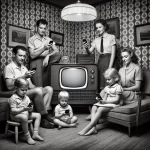Have you ever thought of putting together a loyalty program for customers?
This is one of my least favorite tactics for retaining existing customers. The programs are expensive, very time consuming and most of all, in my experience, ineffective.
There is a better approach that is often missed by most marketers. The surprise.
The surprise is a way of giving something to customers when they don’t expect a reward. If I tell you that if you buy 4 sandwiches, the fifth is free – that is a very transactional approach to business. Emotionless.
But what happens when you randomly start giving small surprises or gifts to regular customers that can matter to them in a deeper way.
CHEERS: Gary Vaynerchuk told me the story about a Wine Library customer who was in his top ten customers for the year. He could have easily offered a club or discount program but it felt like a detached reward. Instead, he followed the customer on twitter and saw that he loved to talk about a very specific football player that was his idol. Gary found an autograph shirt of the customer’s idol, and sent him a personal note that connected Gary’s brand, Wine Library with something the customer cared about deeply.
BOOKS: In another example, when I worked in the food industry, I would listen very carefully to our top customers (retailers, distributors, wholesalers, brokers, agents) who would talk about their challenges. Since retailers can’t typically accept gifts, I would send them business books that would share ideas and insights on their challenges. I’d mention in my note that I know they may not be allowed to accept a gift, so they can return the book if necessary after they read it. (I would send a prepaid envelope).
I never got a book back. I did earn some valuable ‘brownie points’.
SMALL GIFTS OF THANKS: Another company I advised was looking for a loyalty program for their small retail store. The owner and I created a very simple to enact ‘gift with purchase’ program that wasn’t communicated publically. She would give away small gifts to loyal customers and not ask for anything in exchange. It had a built shareability too since many customers would tell about the surprise gift they received at the store. Although a modest and token gift, the store owner learned that the surprise factor made a big difference and won over the hearts of her top customers. The law of reciprocity, as outlined in Robert Cialdini’s book The Psychology of Persuasion, is worth reading if you are looking to understand more about how this works.
From The Six Laws of Influence:
Reciprocity
“As humans, we generally aim to return favors, pay back debts, and treat others as they treat us. According to the idea of reciprocity, this can lead us to feel obliged to offer concessions or discounts to others if they have offered them to us. This is because we’re uncomfortable with feeling indebted to them.
For example, if a colleague helps you when you’re busy with a project, you might feel obliged to support her ideas for improving team processes. You might decide to buy more from a supplier if they have offered you an aggressive discount. Or, you might give money to a charity fundraiser who has given you a flower in the street.”
The Human Filter
Think about loyalty programs through a human filter. Instead of a bank giving away toasters to everyone, what happens when they give something of equal value to customers but personalized to something special about that customer. Yes, it is harder to scale but that is a lazy reason not to do it.
Think human, personal and emotional. It’s a much better approach to loyalty.
Interested in growing your business? I can help you increase profitable revenue with marketing insights. To learn more, click this link.




Right ON, Jeff.
Gary V drives me a bit mad, but his big-picture ideas are among the smartest you’ll ever come across.
I think it comes down to passion; he seems to live his entire life in the moment and is great at letting it carry over into all corners
That’s the secret, isn’t it?
Jeff
I think the key point Gary is always focused on is the human side of business. People aren’t targets or data points – they are flesh and blood. The secret is for companies to not be B2B or B2C but H2H. (Human to human).
Thanks for the comment.
The other Jeff